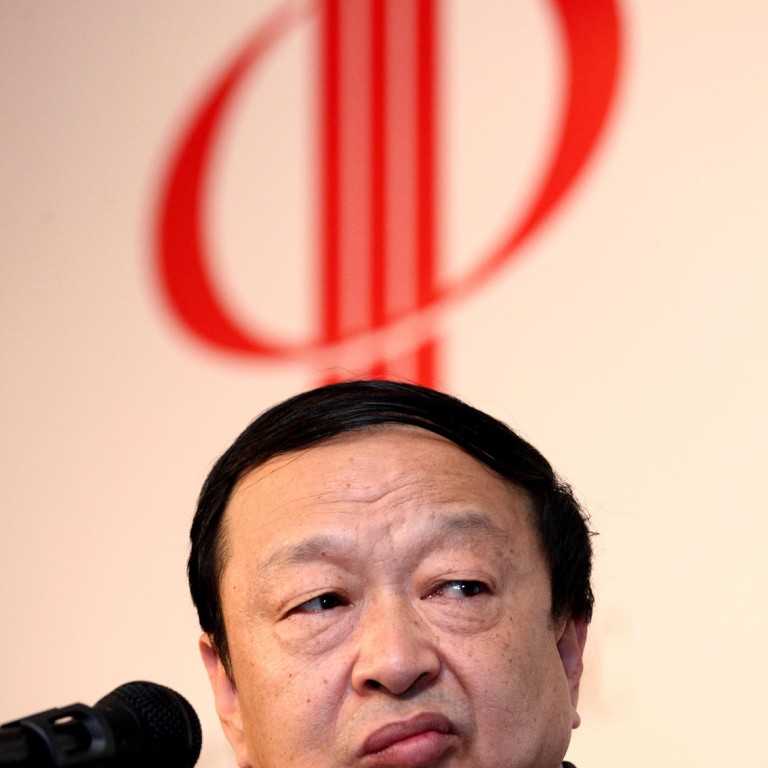
The chess master behind the Citic takeover deal
Chang Zhenming is a master of Go, an intricate game played between two people that requires an in-depth mastery of strategy to win. It is usually called in Chinese and originated in the country 2,500 years ago.
Chang comes from a humble family background and is burning with the desire to make a difference. He did. The 57-year-old chairman of steel-to-financial conglomerate Citic Group is believed to be the mastermind behind the US$36 billion takeover to make Hong Kong home for one of the largest state-owned enterprises in the latest wave of reforms on the mainland.
This would make Citic the pioneer in the latest round of Beijing's reform of state firms. Chang's decision, with support from top leaders who are his "chess friends", to let a firm that is considered the "son" in Hong Kong take over its "parent" on the mainland surprised the industry.
The surprise burnishes Chang's reputation that he always dares to make a difference in the mainland's bureaucratic system of state enterprises.
"Mr Chang is one of the most prominent business leaders with a strategic vision. A founder of Citic Securities, he is the key person to transform Citic Securities into a publicly listed company through a share sale in Shanghai," a manager who worked closely with Chang told the . "He is always open-minded and able to come up with different approaches when facing challenges."
People who had worked with Chang praised his management philosophy and business vision, which permeates the entire Citic group, something he apparently picked up learning the intricacies of Go at an early age.
Chang, who won second runner-up in a national-level Go competition in the late 1970s, emphasises execution and disciplined decision-making based on statistical models and business analysis, which is rare in a generation who grew up during the dramatic changes on the mainland over two decades of the Great Leap Forward and the Cultural Revolution.
They said the professional background of Chang, whose father was a professor with Tsinghua University in Beijing, had helped him climb the corporate ladder in a state-owned firm stuffed with party princelings and well-connected individuals.
Citic Group, formerly known as China International Trust and Investment Corp, was the mainland's first overseas investment vehicle. It was set up in 1979 by former vice-president Rong Yiren, with special backing from the late paramount leader Deng Xiaoping, to help the mainland invest abroad in the early days of economic reform.
Citic Pacific was listed in Hong Kong in 1990. As a "window company" of the central government, the company played a pioneering role in the mainland's economic reform and opening to the outside world by tapping overseas capital markets.
Before rejoining Citic Group in 2006, Chang was vice-chairman and president of China Construction Bank from July 2004 to July 2006, when he and then chairman Guo Shuqing, the former head of the China Securities Regulatory Commission, took the lender public for a Hong Kong listing in 2005.
Former Citic Pacific chairman Larry Yung Chi-kin, Rong's son, resigned in April 2009, six months after the company belatedly revealed that unauthorised wrong-way bets on foreign currencies had led to the company suffering losses of about HK$15 billion. Henry Fan Hung-ling, managing director who founded Citic Pacific with Yung in 1990, also resigned.
Yung, who earned the nickname the "Red Capitalist" due to his family ties with the Communist Party, was born in Shanghai in 1942 and made his fortune after coming to Hong Kong in 1978. He was once the richest man on the mainland.
Chang first gained global attention as vice-chairman of Citic Group in talks to invest in Bear Stearns during the 2008 global financial crisis on Wall Street. The deal did not go through in the end but he made his name as a reformer. The latest Citic takeover deal again reflected his different thinking in how to make the mainland's state enterprises stronger.
With more than 20 years of experience in the financial industry, Chang, who earned an MBA degree from the Insurance Society of New York in 1992, also gave strategic advice on Citic Securities' acquisition of CLSA for US$842 million from Credit Agricole last year in a deal that paved the way for a mainland firm to buy a leading investment bank in Asia.

